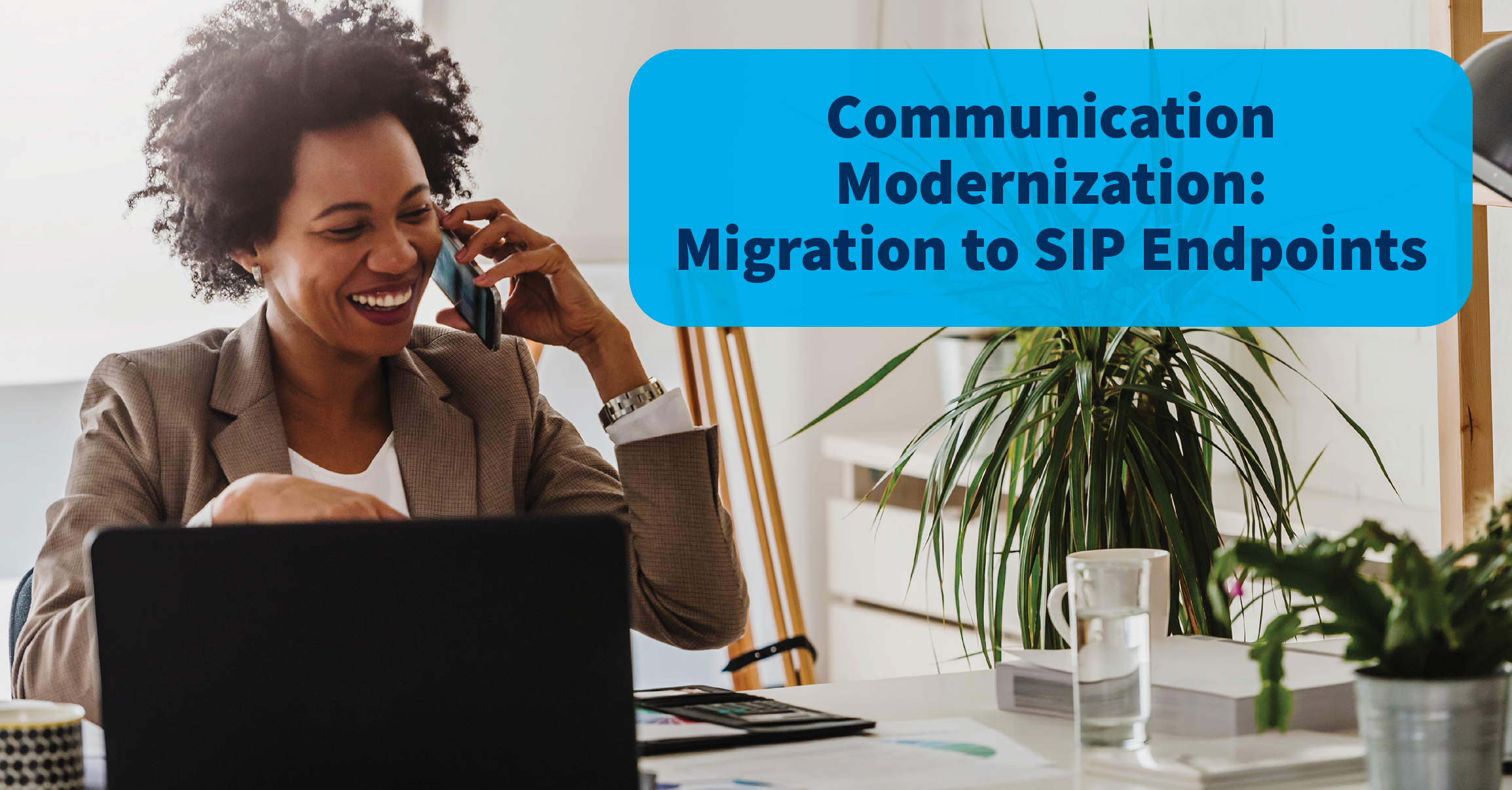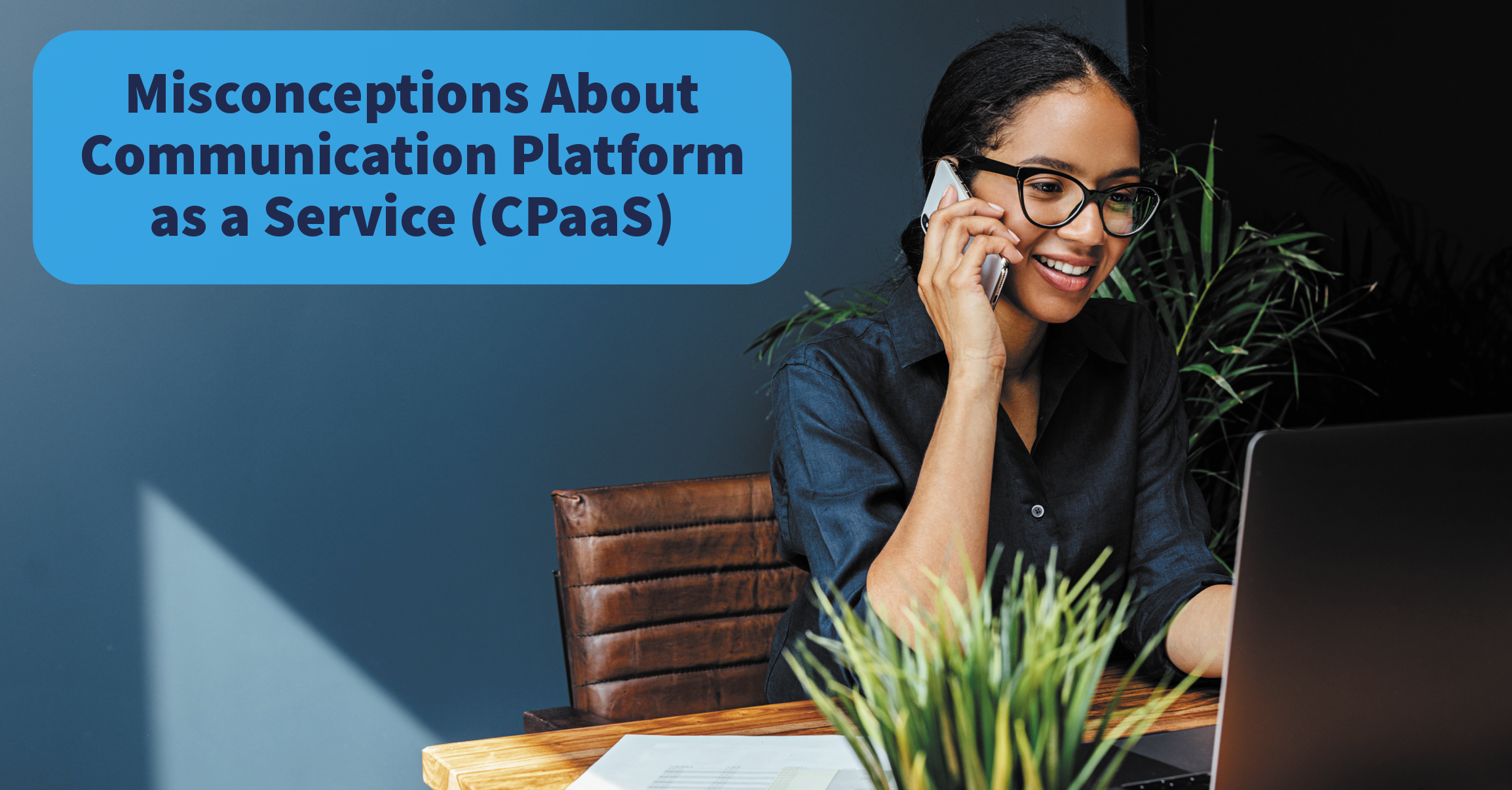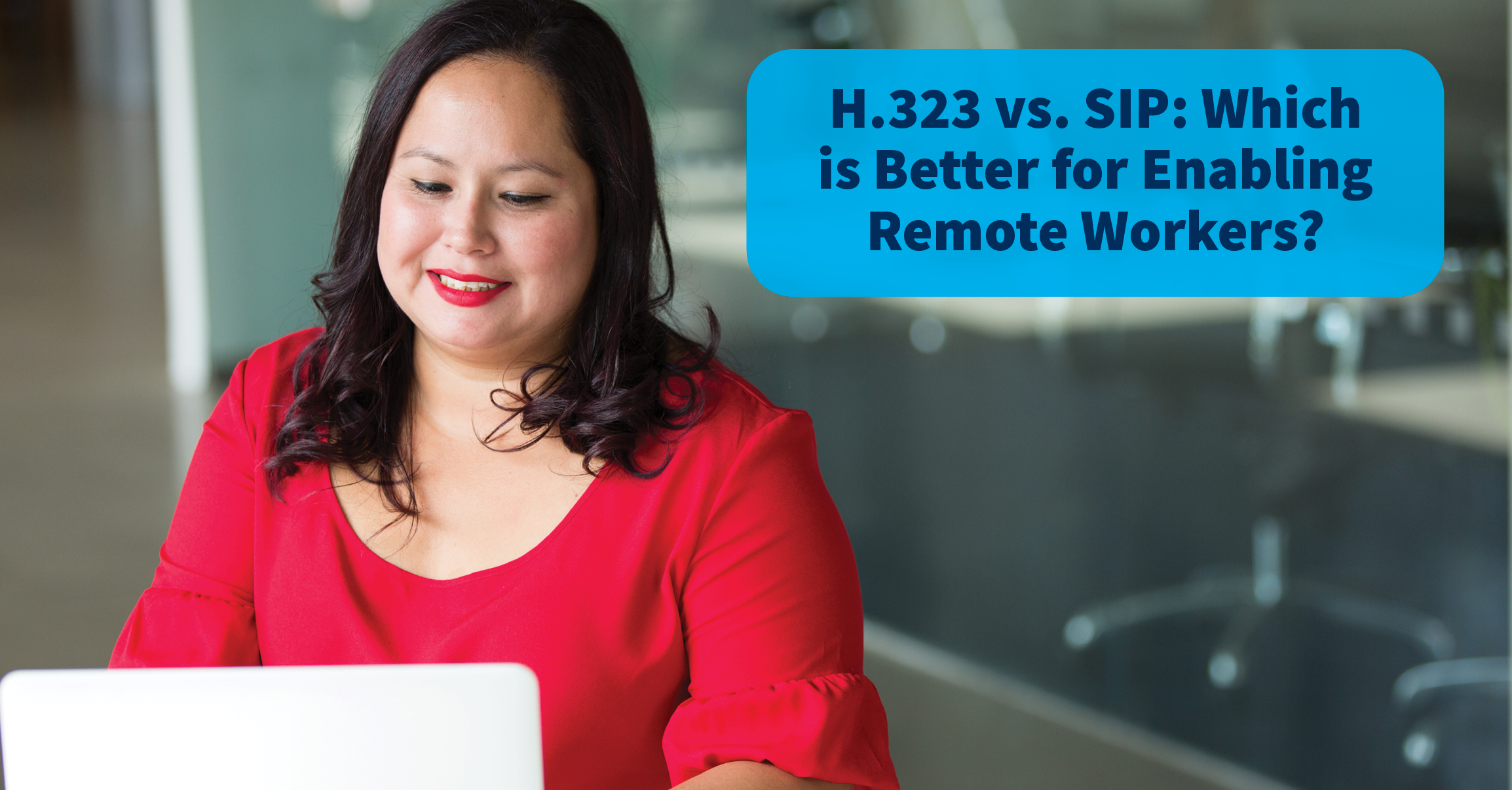David Lover
Recent Posts
My past several blog posts have been talking about the characteristics of a modern communications platform. We’ve talked about the technical things we need to pay attention to in order to deliver a better end-user experience. We’ve talked about the embracing of a mobile-first philosophy, the need for an 11-digit E.164 dial plan to enable better directory integration and click-to-call, the advantages of SIP signaling for endpoints, and so on. We’ve still got a few topics to talk about, but I wanted to share a personal experience I had recently that reminded me why it is so critically important to have these modernization conversations proactively as opposed to waiting until it’s too late.
Read MoreTopics: Unified Communications, Collaboration, Innovation, Infrastructure, Modernization
Continuing our discussion of Communication Modernization from my last post, I want to talk about migrating to SIP endpoints. What about SIP trunks, you ask? I’m not sure I’d consider SIP trunks a “modernization” thing anymore. Many made that switch a LONG time ago—it’s a complete no-brainer for most customers that I deal with. Reduce hardware, decrease cost, increase flexibility, easier redundancy… what’s not to love? No, instead I’m talking about hardphones and softphones. Using SIP as the signaling protocol is almost always the right answer. Let’s talk about why.
Read MoreTopics: Unified Communications, Digital Transformation, Collaboration, Modernization
The Financial, Technical, and Security Benefits of Administration Automation
Posted on September 7, 2021 by David Lover
Today I want to talk about one of the guiding principles of modernization: Automation. When I talk about automation, I’m specifically talking about administration automation. At first, it would seem like this is mostly about making life easier for the administrators—and yes, that’s part of it. However, there’s actually a lot of business value that goes along with this type of automation. Let’s take a look at the benefits from the lens of the different stakeholders.
Read MoreTopics: Security, Unified Communications, Cyber Security, Automation
When people talk about endpoint modernization, everyone assumes that we’re referring to the elimination of hard physical phones. My response to that is a big MAYBE! If you’re telling me that you’re eliminating hardphones to enable a collaborative architecture that more easily supports a remote and mobile-first user-base, then you had me at hello. But sadly, the response I usually get is “We’re looking to cut costs.” And there, you lost me. I always suggest you recheck your math.
Read MoreTopics: Unified Communications, Digital Transformation, Collaboration
Misconceptions About Communication Platform as a Service (CPaaS)
Posted on May 4, 2021 by David Lover
Recently, I was asked to speak about Public Cloud Services, and specifically, CPaaS (Communication Platform as a Service) during a training call. It was actually really good timing, because this has been a hot topic with vendors, partners, and customers. In those discussions, I find that there’s a lot of misconceptions about what CPaaS actually is. As mentioned, CPaaS stands for Communication Platform as a Service, but even that term can mislead you into thinking that it’s a much broader and more inclusive thing than it actually is.
Read MoreTopics: Contact Center, Cloud, Customer Experience, Unified Communications, Collaboration
When we think about the world of Contact Centers, the concept we’re describing is the ability to get someone’s request for something routed to the best person to handle that request. That “something” started out as phone calls, made by someone calling into a group of people (known as agents) who could answer that phone call and help the caller with their request.
Read MoreTopics: Contact Center, Customer Experience
The hot pieces of legislation currently affecting the communications industry are Kari’s Law and the Ray Baum’s Act. At a high level, these two items deal with 911. Kari’s Law is about a company’s responsibility and requirement to ensure that users can dial 911 without needing to dial a code to get an outside line first. The Ray Baum Act is about making sure the system can identify and communicate the dispatchable location of that person who dialed 911.
Read MoreTopics: Unified Communications, E911
When it comes to planning for a remote and mobile workforce, a lot of companies are entering the second phase of their strategy, in which they are planning for a more permanent solution. The first phase was somewhere along the lines of, “This may not be the best approach, but we just need to get it done.” This included leveraging a lot of free temporary licenses, which typically had 30-90 day expiration dates, so they now need to figure out what’s next. At ConvergeOne, we’ve been having a lot of conversations about permanent solutions with customers. It might be because these customers think the “shelter in place” orders will be getting extended longer than first anticipated, but it might also be because people are seeing firsthand the value of enabling a remote, mobile workforce.
Read MoreTopics: Unified Communications, COVID-19
I’ve been spending a lot of my time talking with customers about remote worker strategies. Most are sending their employees home to work. As I discussed in an earlier blog post, for some customers it’s a very easy, short conversation (i.e., those that have already adopted a mobile-first strategy). For others, that discussion is a bit more involved. Customers who find themselves behind the 8-ball are not looking for a long, strategic, vendor-agnostic conversation. They want to know what they can do now. So, when conversations go that direction, it’s time to roll up the sleeves and dive into the tactical weeds. They don’t have time for a rip and replace. They require a vendor-specific conversation, that can include layered cloud services on top of their existing platform.
Read MoreTopics: Unified Communications, Remote Working, COVID-19
I’m always a little surprised when I meet with a company that hasn’t embraced a mobile-first philosophy when it comes to deploying its unified communications (UC) solutions. What does it mean to be mobile? We all know mobility is important. Once you have it, you really can’t imagine life before it. You know the saying: Work is what you do, not where you go. Obviously, this doesn’t apply to every job function, but a lot of information worker-type jobs can be done from anywhere.
Read MoreTopics: Unified Communications, Mobility, Remote Working, COVID-19











